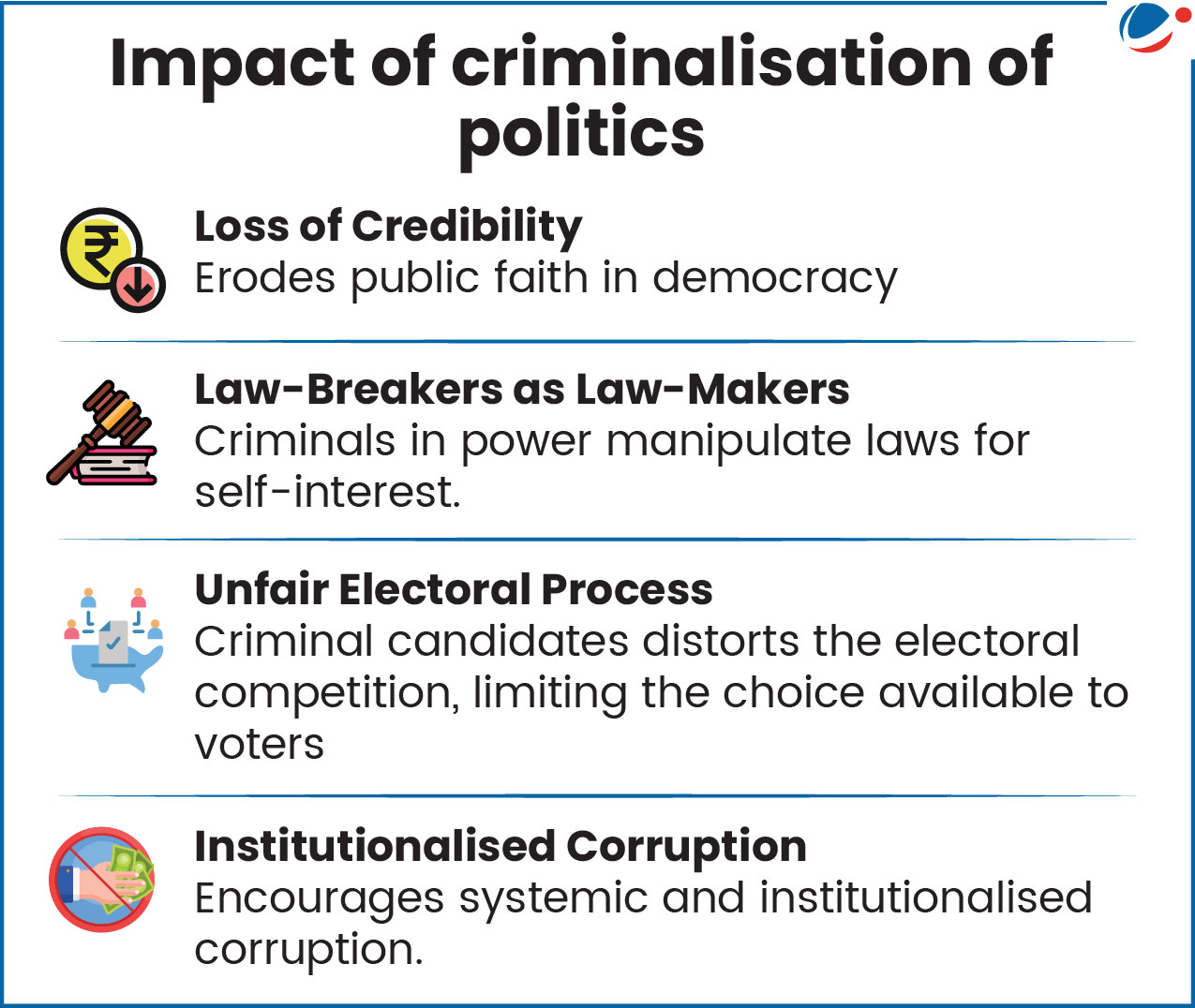Why in the News?
A report by Association for Democratic Reforms (ADR) has found that about 47% of Ministers in India, including in the Union Cabinet and State Cabinets, have declared criminal cases against themselves, out of which 27% are of a serious nature.
Causes of Criminalisation of politics
Criminalisation of politics refers to the entry and participation of persons with criminal backgrounds in the political and electoral process. The causes include:

- Politico-Criminal Nexus: Criminals enter politics to gain immunity and legitimacy, while politicians and parties use them for their muscle and financial power, creating a vicious cycle of mutual benefit.
- Vohra Committee Report (1993) highlighted the nexus of politicians, criminals and bureaucrats in the Indian administrative and political setup.
- "Winnable" Candidates: ADR data 2024, indicates that the success rate for candidates with criminal charges was 15.3%, while candidates without any criminal cases had a much lower success rate of just 4.4%.
- High cost of elections: To fund election campaigns, candidates and parties often rely on "black money" and funds from the mafia.
- Slow Justice system: Poor conviction rate for MPs and MLAs, coupled with trial delays, does not deter political parties from giving tickets to candidates with a criminal background.
- 55% rise in MPs with criminal records since 2009 (ADR Report 2024)
- Identity Politics: Elections often prioritize caste/religion over criminal records.
Constitutional and legal provisions to reduce Criminalisation of politics
- Representation of People Act, 1951
- Disqualification under Section 8: Individuals convicted of heinous crimes or sentenced to two years or more face disqualification.
- Section 11: Gives the EC the power to remove or reduce the period of disqualification. This power was utilized in September 2019 to reduce the disqualification period of Prem Singh Tamang.
- Recent Initiatives
- 130th Constitutional Amendment Bill: Seeks to amend Articles 75 and 164. It proposes that a Minister arrested and detained for 30 consecutive days for an alleged offense punishable with imprisonment of at least five years, shall be removed from office.

Way Forward
- Enhanced Penalties for False Affidavits: The punishment for filing false affidavits (recommended by 244th Law Commission Report, 2014) should be enhanced to a minimum of two years imprisonment, and this offense should also be made a ground for disqualification.
- Dedicated Election Benches: High Courts should set up dedicated election benches to hear petitions through day-to-day trials, ensuring timely convictions before disqualification of candidates.
- Review of Section 11 of RPA, 1951: Convictions for serious crimes should be kept out of the Election Commission's power to reduce the period of disqualification.
- Financial and Transparency Reforms: Political parties should be brought under the RTI Act, 2005.






